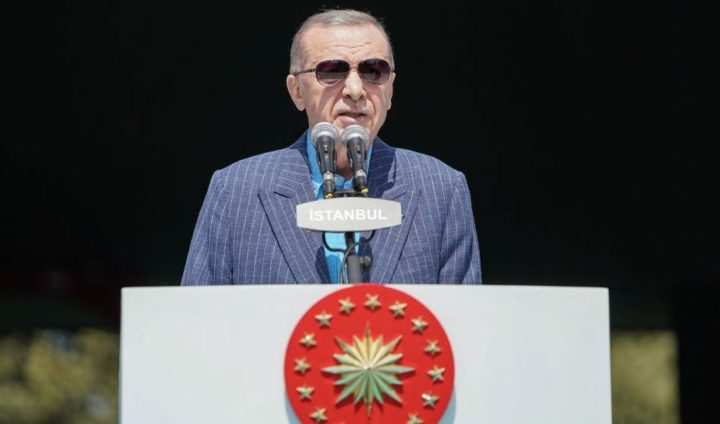Turkish citizens are currently participating in a historic presidential run-off, determining whether Recep Tayyip Erdogan will continue his 20-year rule.
Challenger Kemal Kilicdaroglu, supported by a wide opposition coalition, urged voters to turn out and “remove an authoritarian regime.”
Erdogan, the favored candidate, promises a new era of unity, aiming to lead the nation into a “Turkish century.”
However, the pressing concern at hand is the pervasive inflation and the crisis of rising living costs.
Voters have a nine-hour window to cast their ballots until 17:00 (14:00 GMT), and many were already patiently waiting outside a polling station in central Ankara before the doors opened. One determined 80-year-old woman set her alarm for 05:00 to ensure she arrived on time.
The first round saw an impressive 88.8% voter turnout, with Erdogan leading by 2.5 million votes. Both candidates now seek the support of the eight million eligible voters who abstained in the previous round.
Ahead of the run-off, Kilicdaroglu accused his rival of unfair play, alleging that his text messages to voters were blocked while Erdogan’s messages were delivered. After casting his vote in Ankara, Kilicdaroglu urged Turks to safeguard the integrity of the ballot boxes.
Opposition parties have mobilized an army of approximately 400,000 volunteers to prevent any potential election fraud, both at polling stations and during the vote count at the election authority. Among these volunteers, individuals like lawyer Sena are essential to accompany the ballot boxes.
International observers noted an uneven playing field following the first round, but there were no indications that any voting irregularities would have altered the outcome.
While voting in Istanbul, President Erdogan stated that Turkish democracy was experiencing a second round in a presidential election for the first time and encouraged Turks to make use of this opportunity.
On his final day of campaigning, Kilicdaroglu promised a presidency marked by a distinct style, emphasizing, “I have no interest in living in palaces. I will live like you, modestly… and solve your problems.”
This remark was a critique of Erdogan’s vast palatial complex on the outskirts of Ankara, which he relocated to when transitioning from prime minister to president in 2014. After surviving a failed coup in 2016, Erdogan acquired extensive powers, detained tens of thousands of individuals, and gained control of the media.
Therefore, Erdogan’s campaign visit to the mausoleum of a prime minister executed by the military following a coup in 1960 carried significant symbolism. “The era of coups and juntas is over,” he proclaimed.







